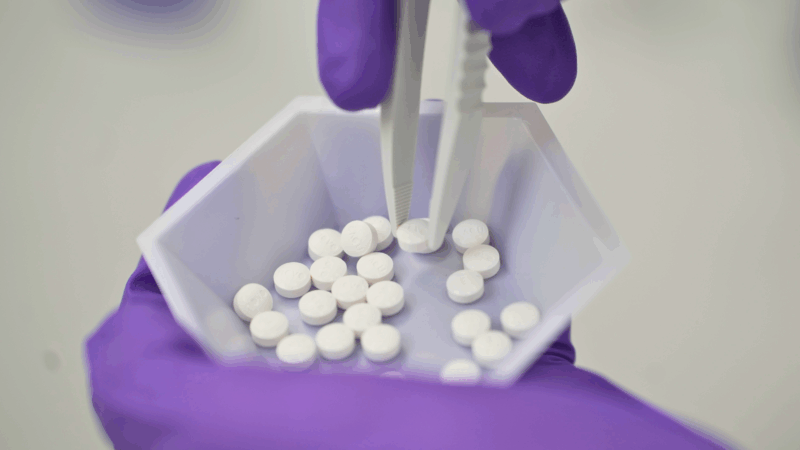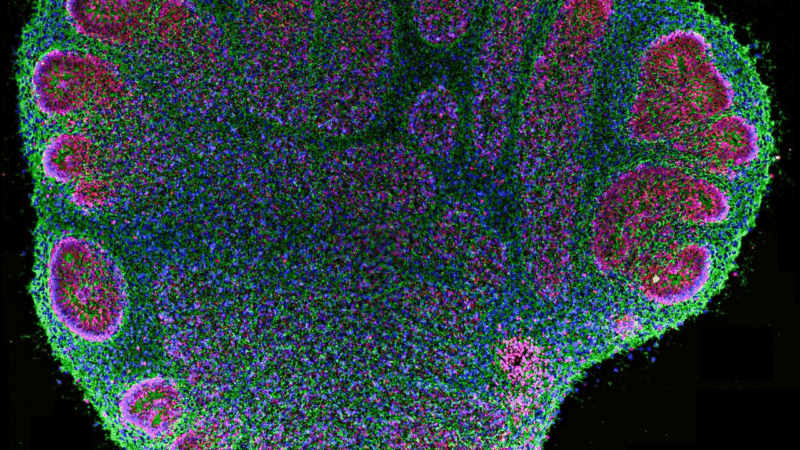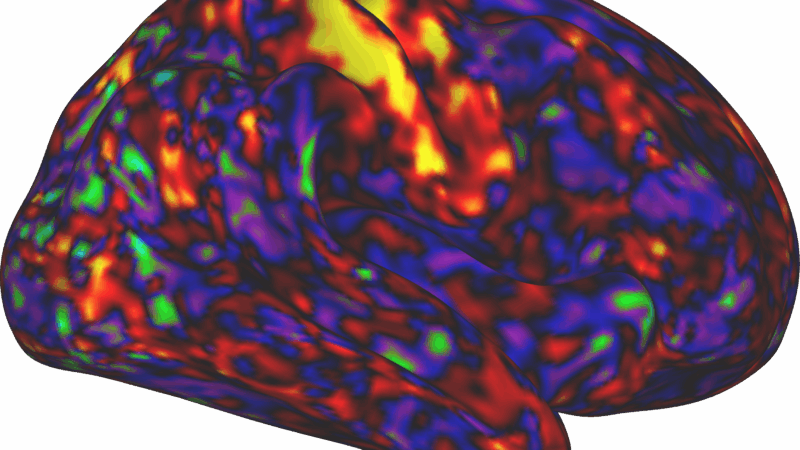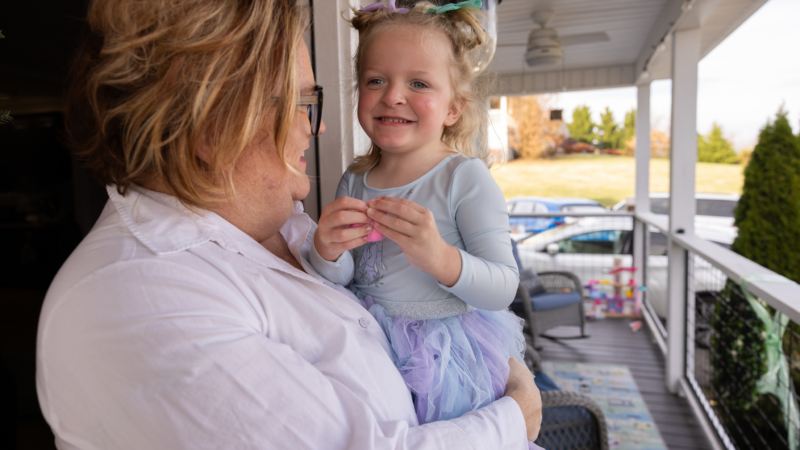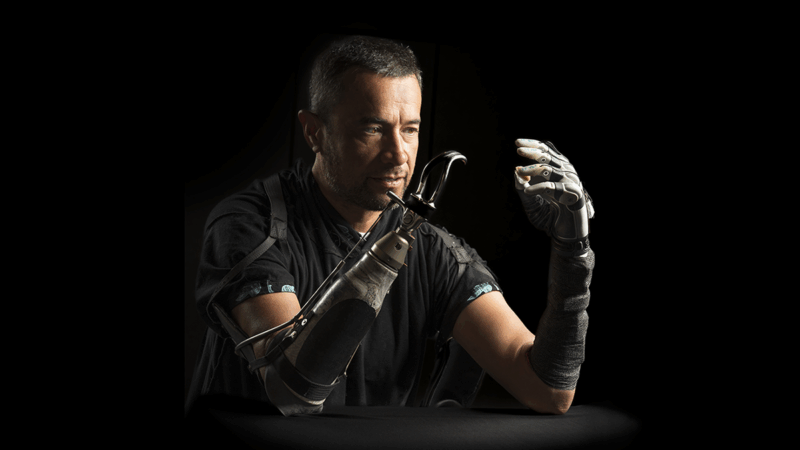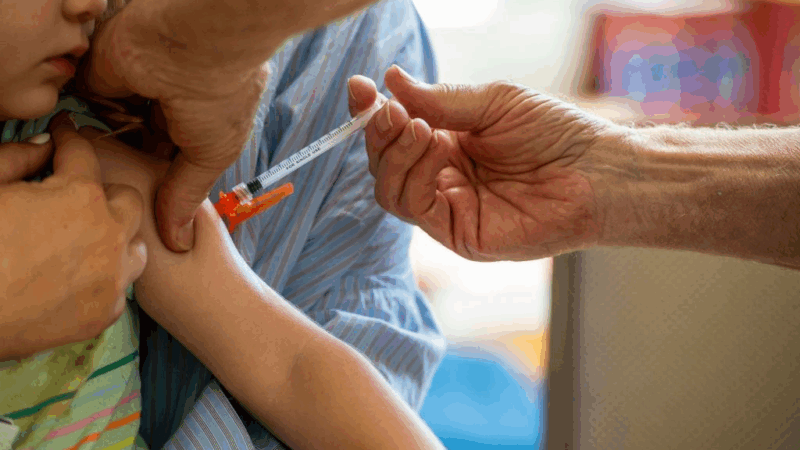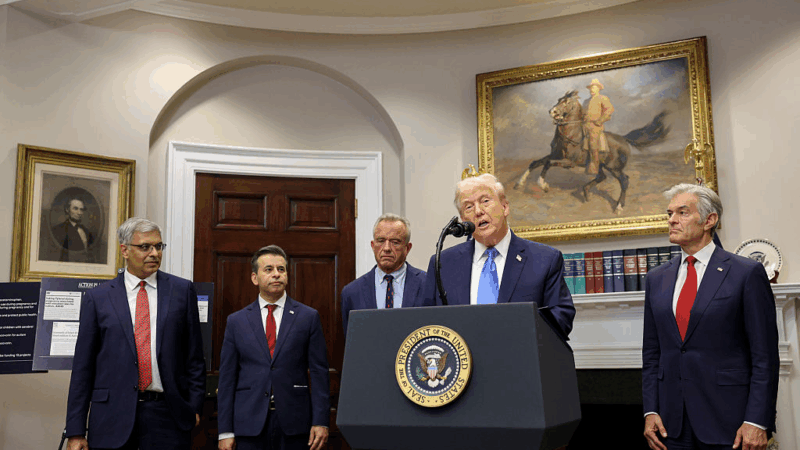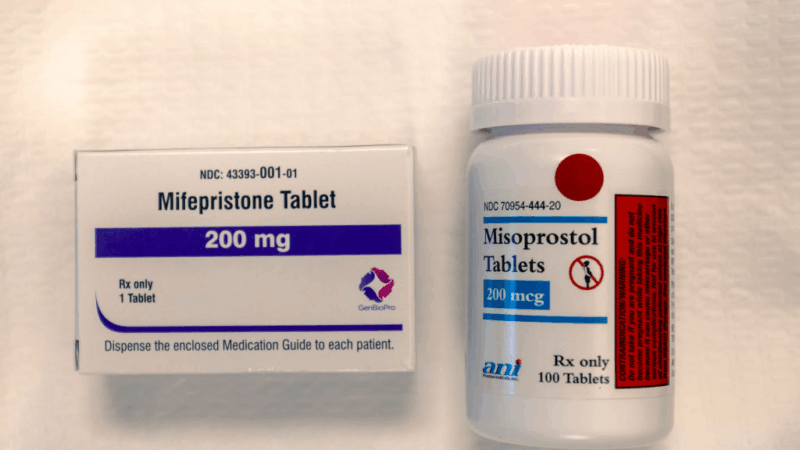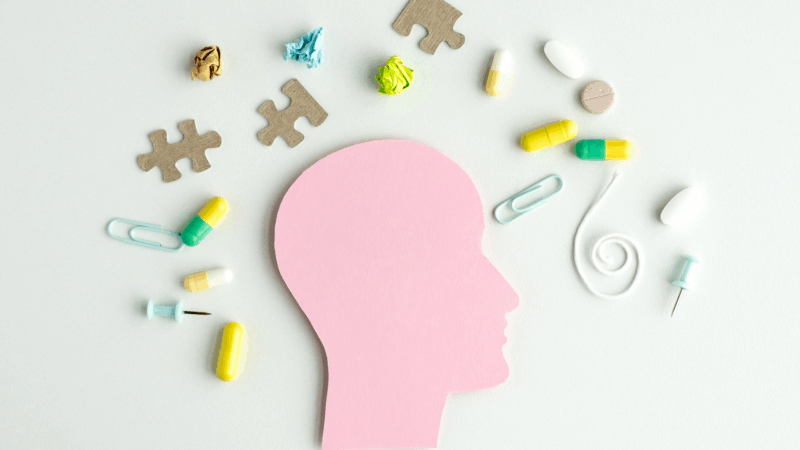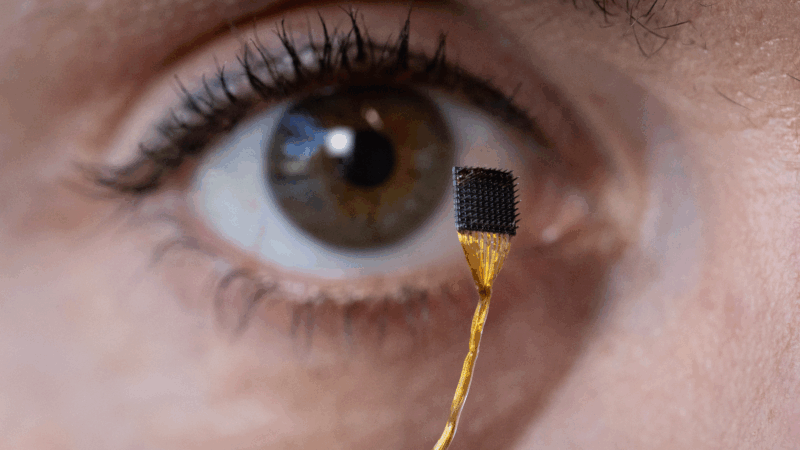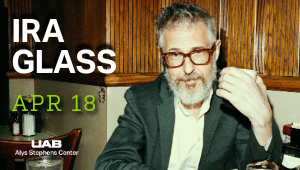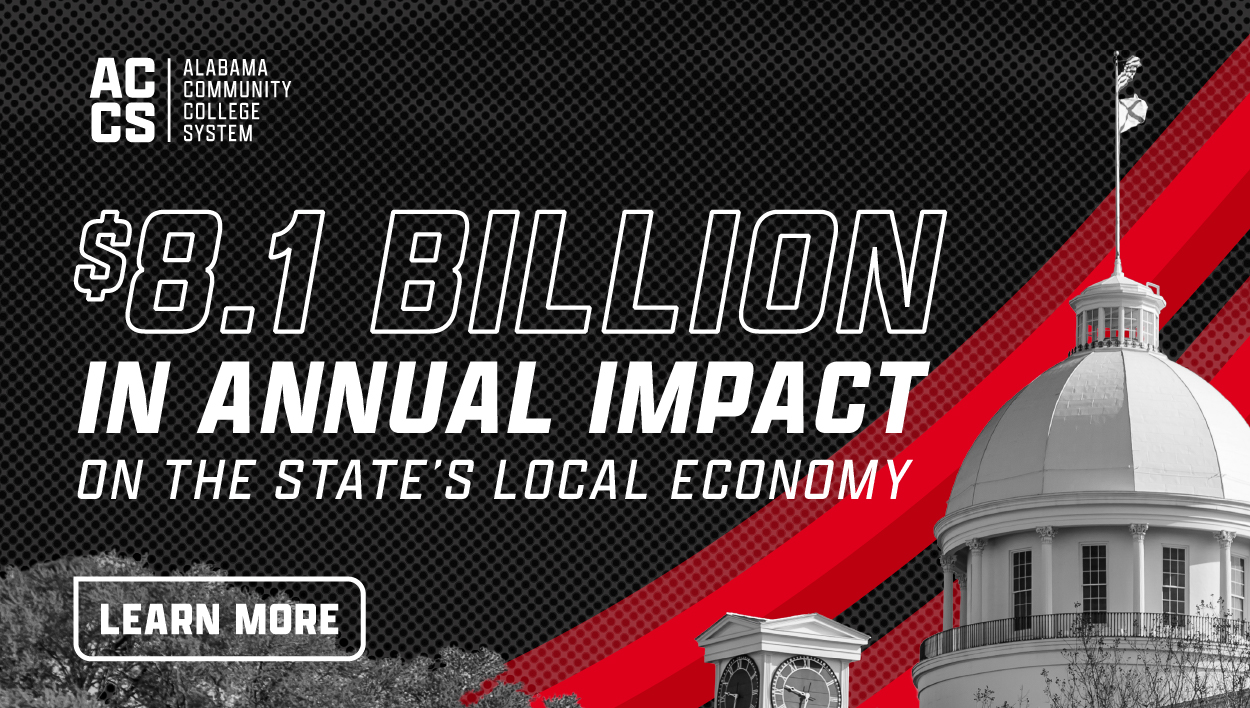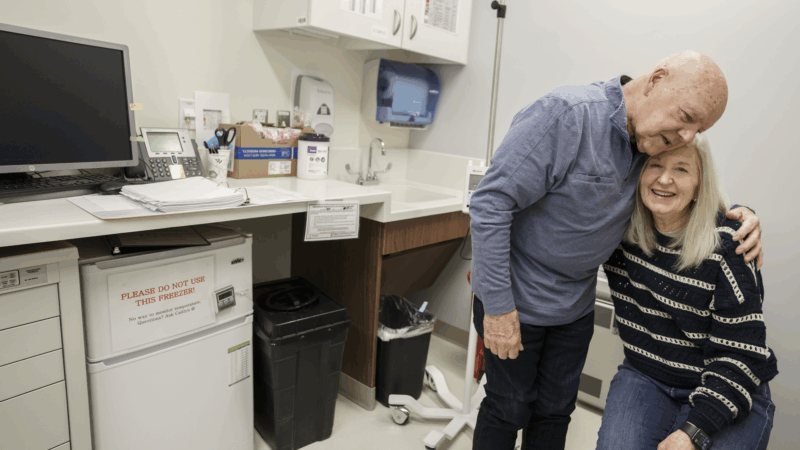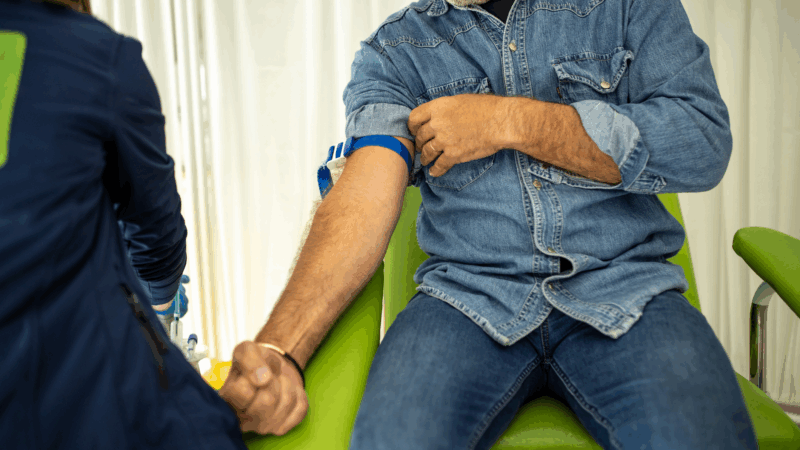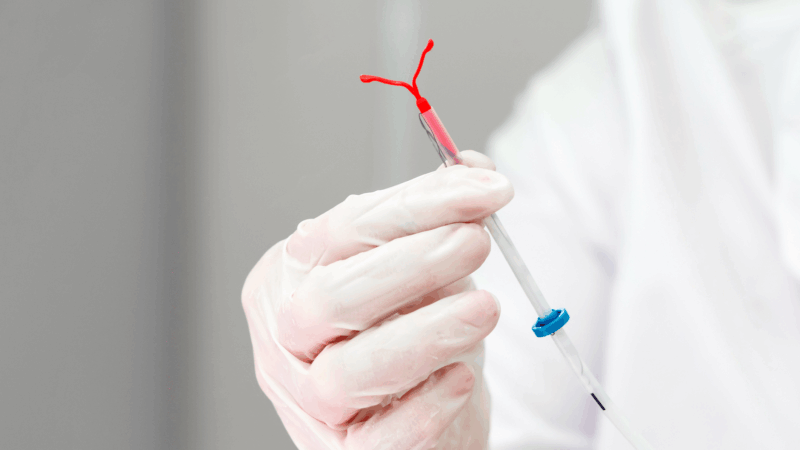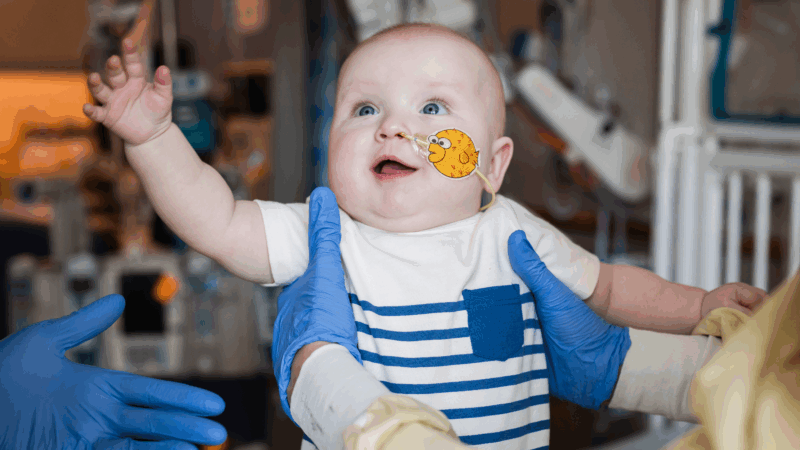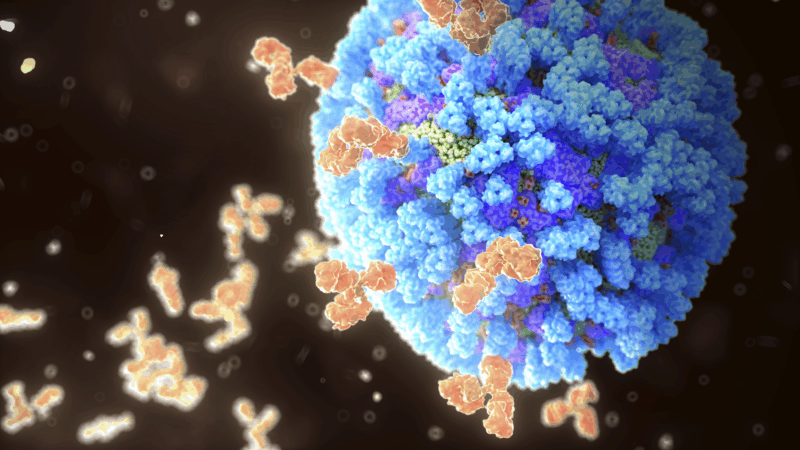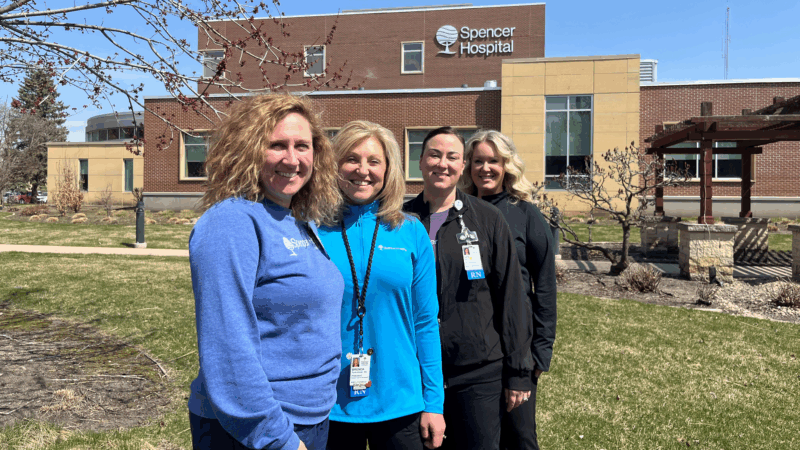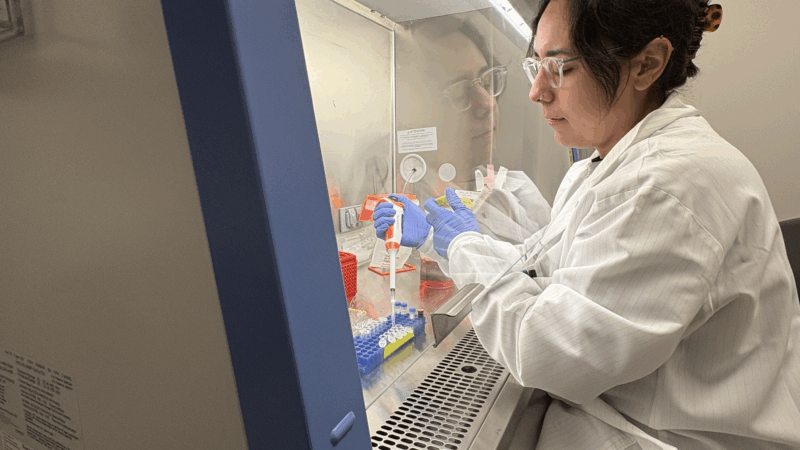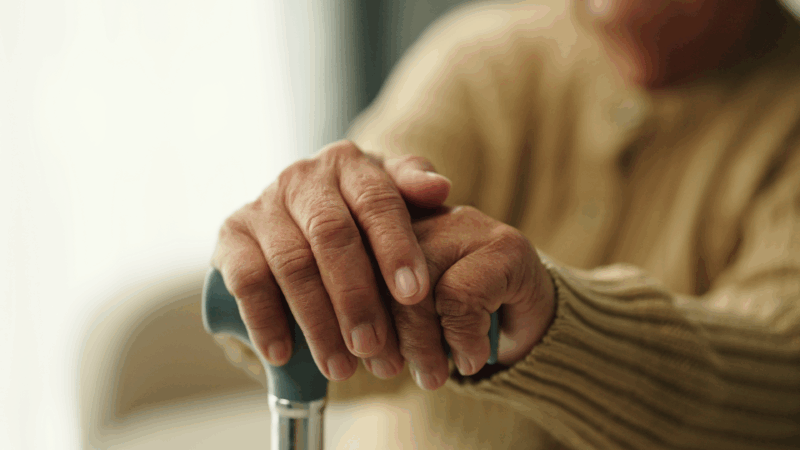Treatments
Wegovy obesity pill now available at pharmacies
Drugmaker Novo Nordisk said the prescription medicine can be found at a range of pharmacies, including CVS and Costco, as well as some telehealth providers.
Brain organoids are helping researchers, but their use also creates unease
Pea-size clusters of human cells called brain organoids inspire both hope and fear. Experts are debating how scientists can responsibly use these bits of gray matter.
ADHD drugs may work indirectly to boost attention
Drugs like Adderall and Ritalin appear to help children with ADHD by activating brain areas involved in alertness and motivation.
It’s the ‘gold standard’ in autism care. Why are states reining it in?
Budget shortfalls and nearly $1 trillion in looming federal Medicaid cuts have prompted states to rein in spending on a widely embraced autism therapy, pinching families who depend on the services.
Amputees often feel disconnected from their bionic hands. AI could bridge the gap
Sensors and artificial intelligence help a prosthetic hand act more like a natural one, new research shows.
Cannabis works better than opioids for back pain, in two European studies
Millions of Americans use weed to treat chronic pain, but there's little high quality research on whether it works. New findings suggest it can be effective for low back pain, on par with opioids.
The CDC still hasn’t issued COVID vaccine guidelines, leaving access in limbo
Access to the COVID-19 vaccines remains difficult because of an unusual and unexplained delay by the Centers for Disease Control and Prevention in accepting recommendations from its advisers.
Lawsuits against Tylenol’s maker get a boost after Trump’s comments
A law firm appealing a stalled case against Tylenol's maker, Kenvue, says people are calling to join the suit, alleging the painkiller caused autism in children whose mothers took it during pregnancy.
Rheumatoid arthritis kept her captive. This nerve stimulator set her free.
A new surgically implanted device the size of a lima bean can help control rheumatoid arthritis that isn't responding to drugs.
Lab results confusing? Some patients use AI to interpret them, for better or worse
While patients wait to hear back from their doctors about test results, many turn to AI assistants for answers. There are issues with privacy and accuracy.
California considers allowing doctors to prescribe abortion drugs anonymously
If passed, the law would protect doctors from legal risk by letting them omit their names from prescription labels for abortion pills. It would affect the many doctors who use California pharmacies.
The silent killer increases your risk of stroke and dementia. Here’s how to control it
New recommendations for early treatment for hypertension to prevent strokes, heart attacks and dementia come as an experimental medication is shown to lower blood pressure in hard to treat patients.
HHS responds to report about autism and acetaminophen
A report that health secretary Robert F. Kennedy, Jr. has promised will come out this month will look at the causes of autism. Many worry it will have claims unsupported by science.
‘One and done’ dose of LSD keeps anxiety at bay
People with generalized anxiety disorder improved significantly after they got a single dose of LSD powerful enough to induce a psychedelic trip.
In the brain, a lost limb is never really gone
Even years after an arm is amputated, the brain maintains a detailed map of the limb and tries to interact with this phantom appendage.
These brain implants speak your mind — even when you don’t want to
Brain-implanted devices that allow paralyzed people to speak can also decode words they imagine, but don't intend to share.
The quest to create gene-edited babies gets a reboot
There's a fresh push to edit the genes of human embryos to prevent diseases and enhance characteristics that parents value. Bioethicists say just because it's possible doesn't mean it should be done.
How surgeons build a new bladder for cancer patients like Deion Sanders
University of Colorado football coach Deion Sanders announced he got a new bladder this week as part of his cancer treatment. Here's how doctors construct a new bladder from a patient's small intestine.
Scientists are developing artificial blood that could save lives in emergencies
A research team has successfully tested a blood substitute in animals, and human trials may not be far off. The powdered blood could help medics respond faster in a crisis.
Why a new opioid alternative is out of reach for some pain patients
Journavx is the first truly new painkiller approved by the Food and Drug Administration in more than 20 years. But the drug is expensive, and many people can't get it yet.
After quitting antidepressants, some people suffer surprising, lingering symptoms
The symptoms can include nerve pain, emotional numbness and sexual dysfunction and can last for years after stopping the drugs. Patients are pushing for recognition and more research.
Ancient miasma theory may help explain Health Secretary Robert F. Kennedy Jr.’s vaccine moves
Health Secretary Robert F. Kennedy Jr. apparently embraces the outdated "miasma theory" of disease instead of the widely accept "germ theory" of disease, which may help explain some of the actions he's been taking.
NIH scientists call on director to protect biomedical research
In a public letter, hundreds of scientists expressed their dissent to the Trump administration's policies affecting the National Institutes of Health and called on its director to support the agency.
Memory cafes offer camaraderie and fun for people with dementia — and their caregivers
'Memory cafes' are small social gatherings for individuals with dementia — and their caregivers, too. As public health funding shrinks, memory cafes are cheap to run and can offer measurable benefits.
Can this nasal spray slow down Alzheimer’s? One couple is helping scientists find out
Joe Walsh is the first Alzheimer's patient to be treated with an experimental nasal spray designed to reduce inflammation in the brain.
The pros and cons of PSA tests for prostate cancer for midlife and older men
With Biden's prostate cancer in the news, men may be wondering whether and at what age to be screened. Advice about the value PSA tests has fluctuated. Here's what to know.
Doctors urged to treat pain for IUD insertion and other procedures
A major medical group now recommends pain-blocking treatments for IUD insertion and other procedures amid a growing recognition that women's pain should be treated.
A promising genetic treatment tailor-made for a baby born with a rare disorder
For the first time, doctors have created a customized treatment using the revolutionary gene-editing technique known as CRISPR to treat a baby with a rare, life-threatening genetic disorder.
Trump administration’s universal flu vaccine project puzzles scientists
The Trump administration has launched a $500 million project to develop a universal flu vaccine that won't need yearly updates. But vaccine experts are mystified by its focus on a dated technology.
Medicaid payments barely keep hospital mental health units afloat. Federal cuts could sink them
Patients seeking mental health care are more likely to be on Medicaid than patients in more profitable areas of care, such as cancer or cardiac treatment.
As a diversity grant dies, young scientists fear it will haunt their careers
The Trump administration defunded the National Institute of Health's MOSAIC grant program, which launched the careers of scientists from diverse backgrounds.
Stem cells to treat Parkinson’s? Two small studies hint at success
Two new studies suggest that Parkinson's disease can potentially be treated with stem cells placed in a patient's brain.

